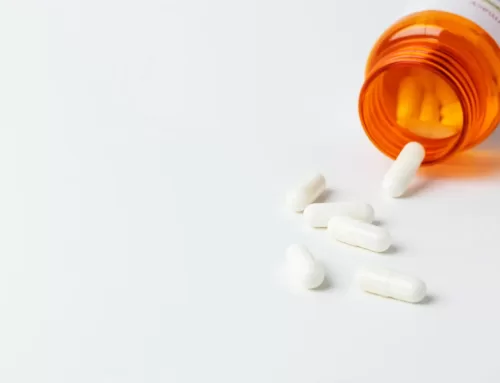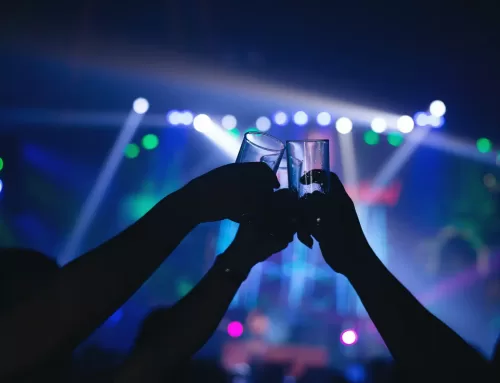
Social Isolation and Addiction Treatment: How Prescott Rehab Helps Residents Reconnect
Research indicates that social isolation increases relapse risk by over 40%, highlighting why addressing loneliness is critical in addiction recovery. In this comprehensive guide, you’ll discover how social isolation fuels substance use, the integrated approach Prescott Rehab applies to rebuild community bonds, and the therapies—both evidence-based and holistic—that restore social skills and confidence.
We map how dual diagnosis care, aftercare support, family involvement, success stories, community activities, and local Prescott resources all contribute to lasting reconnection. Whether you’re exploring rehab centers in Prescott AZ or evaluating Prescott Rehab facilities, this article outlines every element designed to break isolation and promote sustained sobriety.
How Does Social Isolation Impact Addiction and Recovery?
Social isolation is a critical risk factor that exacerbates substance use disorders by altering brain chemistry, increasing stress hormones, and undermining coping mechanisms. Understanding these mechanisms explains why restoring connections is as vital as detoxification.
What Are the Psychological and Neurological Effects of Loneliness on Addiction?
Loneliness triggers heightened cortisol levels, reduces dopamine receptor sensitivity, and impairs executive functioning, creating a feedback loop that drives substance cravings and poor impulse control.
- Cortisol surge increases stress-related cravings.
- Dopamine dysregulation diminishes natural reward responses.
- Prefrontal cortex impairment weakens decision-making and self-regulation.
These neurobiological changes hinder recovery efforts and pave the way for relapse, underscoring the need for social reconnection as part of comprehensive care.
What Do Statistics Reveal About Social Isolation and Relapse Risks?
Studies show that individuals with minimal social support have a 60% higher chance of returning to substance use within six months. Surveys reveal:
- 45% of people in recovery cite loneliness as a primary relapse trigger.
- Group treatment participants maintain sobriety at a rate 30% higher than those in solitary programs.
Social Isolation and Relapse Risk
Research indicates that individuals with minimal social support have a 60% higher chance of returning to substance use within six months, highlighting the critical role of social connection in recovery. Studies also reveal that 45% of people in recovery cite loneliness as a primary relapse trigger, emphasizing the need for integrated approaches.
Group Therapy and Sobriety
Group treatment participants maintain sobriety at a rate 30% higher than those in solitary programs, demonstrating the effectiveness of peer engagement and community activities in reducing relapse and accelerating healing. This underscores the benefits of structured social settings in addiction recovery.
How Does Loneliness Increase Vulnerability to Substance Use Disorders?
Chronic isolation elevates emotional distress and promotes self-medication with alcohol, opioids, stimulants, and benzodiazepines. Over time, substance misuse becomes a maladaptive coping strategy for unmet social needs. Recognizing this causal relationship guides the design of therapies that rebuild interpersonal skills and self-esteem.
Isolation’s impact on brain reward pathways leads naturally into how Prescott Rehab’s integrated approach confronts these issues at every level.

What Is Prescott Rehab’s Integrated Approach to Overcoming Social Isolation?
Prescott Rehab combines holistic modalities with evidence-based therapies to address the root causes of loneliness while building supportive networks. This dual-focus strategy fosters reconnection and resilience.
How Does Prescott Rehab Combine Holistic and Evidence-Based Therapies?
Embark Recovery offers a blend of clinical treatments—like cognitive behavioral therapy (CBT), dialectical behavior therapy (DBT), and medical supervision—with holistic practices such as yoga, mindfulness meditation, art therapy, and adventure excursions. By integrating mind-body interventions, residents learn stress management, emotional regulation, and creative self-expression that reinforce social engagement.
What Residential and Outpatient Programs Support Social Reconnection?
Prescott Rehab, like Embark Recovery, has a continuum of care that includes:
- Residential Inpatient: 30–90 days, focusing on daily group sessions and communal living dining.
- Partial Hospitalization Program (PHP): 4–6 weeks, offering intensive day therapies with peer workshops.
- Intensive Outpatient Program (IOP): 8–12 weeks, featuring evening groups and family involvement nights.
- Outpatient Follow-Up: Ongoing, with weekly support groups and alumni meetups.
Each program tier ensures consistent peer contact and collaborative skill-building, laying the groundwork for community rebuilding.
How Does Community Building Form a Core Part of Treatment?
Weekly group activities, alumni events, volunteer projects, and local sober outings immerse residents in structured social settings. These experiences cultivate trust, accountability, and a shared purpose that counteracts isolation and reinforce belonging.
Transitioning from program design to specific therapies clarifies how Prescott Rehab fosters social skills and genuine connection.
Which Therapies at Prescott Rehab Foster Social Skills and Connection?
Prescott rehabs, like Embark Recovery, offers targeted interventions that teach communication, empathy, and confidence—essential skills for building healthy relationships in recovery.
How Does Group Therapy Promote Peer Support and Social Interaction?
Group therapy provides structured forums where residents share experiences, offer feedback, and practice active listening. Key benefits include:
- Establishing mutual accountability through regular check-ins.
- Enhancing empathy by witnessing diverse recovery journeys.
- Practicing interpersonal skills in a safe environment.
These peer-led interactions translate directly into stronger social competence and sustained support networks.
What Are the Benefits of CBT and DBT for Social Anxiety in Addiction Recovery?
Cognitive Behavioral Therapy (CBT) helps reduce negative self-talk in social situations, leading to increased confidence in group settings. Dialectical Behavior Therapy (DBT) builds coping skills for interpersonal conflict, improving relationship stability.
By learning to challenge anxious thoughts and regulate intense emotions, residents gain the ability to engage more comfortably and assertively with others.
How Does Family Therapy Help Rebuild Healthy Relationships?
Family therapy educates loved ones about addiction’s dynamics while facilitating open communication, boundary setting, and mutual support strategies. This collaborative approach heals ruptured bonds and establishes a supportive home environment that guards against isolation-driven relapse.
What Role Do Adventure and Experiential Therapies Play in Social Reintegration?
Outdoor activities—such as rock climbing, hiking, and ropes courses—encourage teamwork, trust building, and shared achievement. These immersive experiences break down social barriers, foster resilience, and translate into real-world social confidence.
Having explored core therapies, the next step addresses co-occurring conditions that deepen isolation.
How Does Prescott Rehab Address Dual Diagnosis of Social Anxiety, Depression, and Addiction?
Treating addiction in isolation overlooks the intertwined nature of social anxiety and depressive disorders, making integrated care essential for healing.
What Is the Link Between Social Anxiety, Depression, and Substance Abuse?
Social anxiety often prompts avoidance of interpersonal situations, while depression diminishes motivation and hope. Substance use becomes a maladaptive strategy to self-medicate both isolation-driven fear and low mood, perpetuating a cycle of withdrawal and relapse.
How Are Integrated Treatment Plans Designed for Dual Diagnosis?
Prescott Rehab creates personalized plans combining medication management, psychotherapy, peer support, and holistic activities. Regular psychiatric evaluations, individualized CBT modules for anxiety, DBT skills for mood stabilization, and group interventions ensure simultaneous treatment of all co-occurring conditions.
Confronting dual diagnosis sets the stage for long-term maintenance of social bonds beyond formal treatment.
How Does Prescott Rehab Support Long-Term Social Connection After Treatment?
Sustaining recovery requires ongoing engagement with peers, mentors, and community resources that reinforce sobriety and social well-being.
What Aftercare and Alumni Programs Help Maintain Social Bonds?
Addiction treatment center’s aftercare includes:
- Weekly alumni support group meetings for experience sharing.
- Peer mentorship pairings between recent graduates and seasoned alumni.
- Monthly sober social events, workshops, and family reunions.
These continuous connections foster accountability and reduce the risk of post-treatment isolation.
How Can Residents Engage with Local Prescott Community Resources?
Residents are introduced to local recovery centers, volunteer organizations, sober recreation groups, and vocational training programs. By integrating into Prescott’s wider support network, alumni build diverse relationships that enrich life after rehab and solidify a sense of belonging. Celebrating real-world outcomes highlights how these approaches transform lives.
What Are the Success Stories of Residents Overcoming Social Isolation at Prescott Rehab?
Personal narratives reveal the tangible impact of combining therapeutic care with community building.
How Have Residents Rebuilt Relationships Through Prescott Rehab’s Programs?
Former residents describe reconnecting with parents, siblings, and old friends after learning communication and trust-building skills. One alum reported rejoining a local sports league, attributing new social confidence to group therapy experiences.
What Do Alumni Say About the Role of Community in Their Recovery?
Alumni frequently credit ongoing peer support, mentorship bonds, and sober outings for maintaining motivation and combating loneliness. They emphasize that belonging to a recovery community is a cornerstone of lasting sobriety.
Family support plays a parallel role in reinforcing these gains.
How Can Families and Loved Ones Support Social Reconnection During Addiction Recovery?
Loved ones act as vital allies in preventing relapse and fostering re-engagement with healthy social networks.
What Educational Programs Does Prescott Rehab Offer for Families?
Prescott Rehab conducts multi-session family workshops that cover addiction science, communication techniques, boundary setting, and relapse prevention planning. These programs equip families with tools to support their loved one without enabling harmful behaviors.
How Can Families Help Prevent Relapse Linked to Social Isolation?
Families can maintain regular check-ins, encourage participation in group events, model healthy social habits, and facilitate involvement in community activities. Consistent emotional support and accountability reduce isolation and create a safety net against substance misuse.
Community involvement amplifies these protective factors.
What Are the Key Benefits of Community Support in Addiction Recovery at Prescott Rehab?
Active participation in a recovery community enhances resilience, accountability, and overall well-being.
How Does Peer Support Reduce Relapse and Promote Sobriety?
Peers serve as role models, offer nonjudgmental empathy, and share coping strategies. This mutual support system increases treatment engagement, reinforces sober identity, and provides a safety network during stressful periods.
What Community Activities Encourage Healthy Social Engagement?
Regular sober events—such as group hikes, volunteer projects, art workshops, and family picnics—offer structured, purpose-driven social settings. Engaging in these activities builds skills, broadens social circles, and replaces substance-centered gathering with positive experiences. Personalized care ensures all residents overcome isolation-related challenges.

How Does Prescott Rehab Tailor Treatment for Social Anxiety and Loneliness in Addiction?
Individualized plans target the unique patterns of social avoidance and emotional distress that underpin each resident’s substance use.
What Specialized Therapies Target Social Anxiety in Addiction Recovery?
Prescott Rehab employs exposure therapy, social skills training, and anxiety-focused CBT modules to confront fears. These therapies gradually increase social comfort through graded practice and constructive feedback.
How Are Social Skills Developed to Build Confidence and Connection?
Life skills workshops teach communication, assertiveness, conflict resolution, and empathy through role-playing exercises. Combined with group feedback, residents develop the confidence to initiate and maintain healthy relationships beyond treatment. Leveraging local partnerships enriches these personalized interventions.
What Local Resources and Support Groups Complement Prescott Rehab’s Social Isolation Treatment?
Integrating with Prescott’s community ecosystem provides diverse avenues for sustained social engagement.
Where Are Peer Support Groups and 12-Step Meetings in Prescott?
Multiple Alcoholics Anonymous and Narcotics Anonymous meetings convene daily at community centers, churches, and local treatment facilities. Peer-led recovery community centers host drop-in support hours and specialized workshops.
How Do Local Partnerships Enhance Social Reintegration Opportunities?
Collaborations with vocational programs, animal-assisted therapy organizations, faith-based groups, and art collectives create varied volunteering and social participation options. These partnerships expand residents’ networks and reinforce their place within the Prescott community.
By weaving facility care with local resources, Prescott Rehab delivers a holistic reconnection journey. Embark Recovery’s comprehensive approach demonstrates that healing addiction requires more than clinical treatment—it demands rebuilding the social fabric that sustains long-term recovery. Contact us now to get started with treatment.
Recent
- Social Isolation and Addiction Treatment: How Prescott Rehab Helps Residents Reconnect
- From Prescription Painkillers to Fentanyl: Why People Turn to Rehab Centers Chandler for Help
- How Drug Treatment Centers Near Me Address Nightlife Triggers for Relapse
- How Peer Pressure Shapes Early Drug Habits and How Outpatient Recovery Curbs Teen Substance Abuse
- The Ultimate Guide to Choosing the Right Drug Rehabilitation Center in Prescott, AZ







